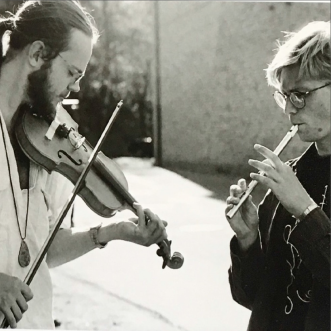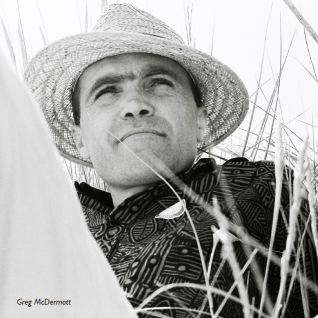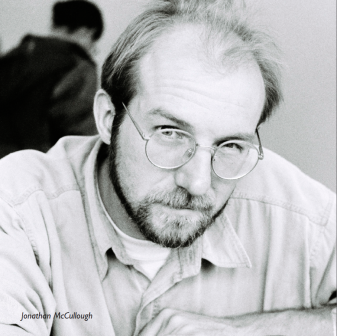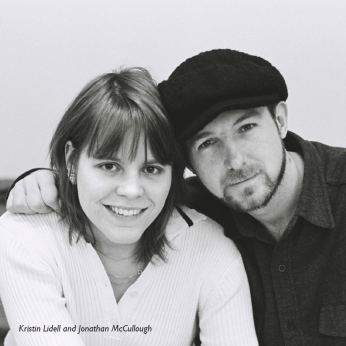In the Beginning
Celtic Connections was a folk music group based in Gothenburg, Sweden, which existed between the years 1990 and 1995. The group’s repertoire combined Celtic folk music with influences from jazz, flamenco, and many other styles and traditions. Despite the fact that Celtic Connections was a relatively short-lived constellation, the group managed to pull off many big projects – among others two tours of Ireland, one album release and a large number of festival gigs throughout Sweden and Denmark.
The group was founded in 1990, and the initiator was myself – at that time a 16 years old fiddle player by the name of Jonas Liljeström. Since childhood, I’d been fascinated with the rich folk music tradition of Ireland, Scotland, Wales and Brittany – as well as Celtic culture and history in general – and I was eager to find other musicians who shared my interest. I started advertising for fellow musicians in various music shops around Gothenburg.
It wasn’t long before a pianist by the name of Greg McDermott got in touch. He came originally from Sydney, Australia, but had Irish ancestry and was himself currently looking for a band to play Irish folk music with. It turned out that Greg had a good friend who wanted to join the group as well, a Northern Irishman by the name of Jonathan McCullough who sang and played bodhrán.
At the same time, Emil Pernblad and David Stiernholm also joined the group. Emil was a classmate of mine at the Rudolf Steiner School in Gothenburg and already a highly gifted flamenco guitarist, and David was a talented and skillful tin-whistle and keyed fiddle player.
At an early stage, the band’s lineup also briefly included Christina Kjellsson, Liliane Håkansson and Ingemar Jonsson. After a couple of years, a brilliant jazz trumpeter and melodeon player by the name of Kristin Lidell also joined the band.
Jonathan McCullough was a very charismatic and strong-willed person with great visions of what we could achieve as a group, and he quickly assumed a natural role as the leader and manager of Celtic Connections. Jonathan was born in Malawi in 1961 as the son of two Presbyterian missionaries, had grown up in Northern Ireland and was in Sweden as a medical student at Gothenburg University.
With Jonathan at the helm, Celtic Connections engaged in very intensive activities during its relatively short existence. The group’s first high profile gig was as warm-up band for The Dubliners at Trädgårdsföreningen in Gothenburg in 1992, followed by – among other projects – two highly successful and memorable summer tours of Ireland in 1993 and 1994 which included gigs at the Letterkenny Folk Festival and the Belfast Folk Festival. Celtic Connections also performed with great success at events such as the Stockholm Water Festival, Umeå Folkmusikfestival, Skagen Folk Festival and Copenhagen Irish Festival.
Jonathan also had an impressive network of contacts and a great ability to persuade influential people and institutions to take interest in our activities. On Celtic Connections’ first album (an eponymous EP released in 1993) he managed to get John McSherry to record uilleann pipes on two tracks – a highly renowned Northern Irish session musician and performer in his own right who has worked with stars such as Nanci Griffith, Sinéad O’Connor and the The Corrs.
This energy and talent for gaining important contacts came in useful when Jonathan and Celtic Connections founded the Gothenburg Irish Festival in 1995 – an Irish culture festival which included concerts, workshops, films, art exhibitions and lectures. Celtic Connections dissolved as a group the same year, but the festival became an annual event. It increased in size year by year, as more and bigger sponsors and cooperative partners became involved in the project. Many great names in Irish and Scottish music and culture participated in the festival in the years to come.
The last Irish festival took place in 1998. The reason for the festival’s termination was that Jonathan fell ill with cancer at the end of summer that year, and in August 1999 he passed away in Belfast. He left us all with great sorrow and pain – working and associating with Jonathan had been a very exciting, rewarding and inspiring experience, and we who had got to know him felt that his passing left a great emptiness.
I myself was very young when I started working with Jonathan, and his encouragement and faith in my musical talent was important in my development as a professional musician. We also came to develop a very close friendship, and it is no exaggeration to say that he almost became like an older brother to me.
In retrospect, it is easy to conclude that the key to the success of Celtic Connections and Gothenburg Irish Festival was to a large extent that they were very timely phenomena. In the early 90s, the Swedish public became very curious and enthusiastic about all things Irish – not least Irish music – so a Swedish based group which played that kind of music had unusually good prospects to find an audience and attract a lot of media attention. But without Jonathan’s charisma, visions and willpower we would never have gained the levels of success that we did. Jonathan also deserves great credit for making Gothenburg Irish Festival as broad and multi-faceted as possible, and including for example art, literature and film within the scope of the festival. It would otherwise have been easy to focus solely on pub culture, which was that aspect of Irish culture that Swedes in general were most often exposed to at the time.
At one point, Jonathan said that his goal was to eventually leave Sweden, retire from the Gothenburg Irish Festival and leave it in the hands of some other festival organizer, to return again at some point and delight in the fact that the project lived on. Sadly, this was not to be – but his work lives on indirectly through Kultursamverkan Svenska kyrkan which grew out of the Church of Sweden’s collaboration with Jonathan as co-organizer during the Gothenburg Irish Festival.
And by releasing Spindrift - Celtic Connections' full length album which was recorded in 1995 but never released - we want to ensure that our music lives on and reaches a new audience, and at the same time celebrate the memory of the man who made it all possible.
Jonas Liljeström





